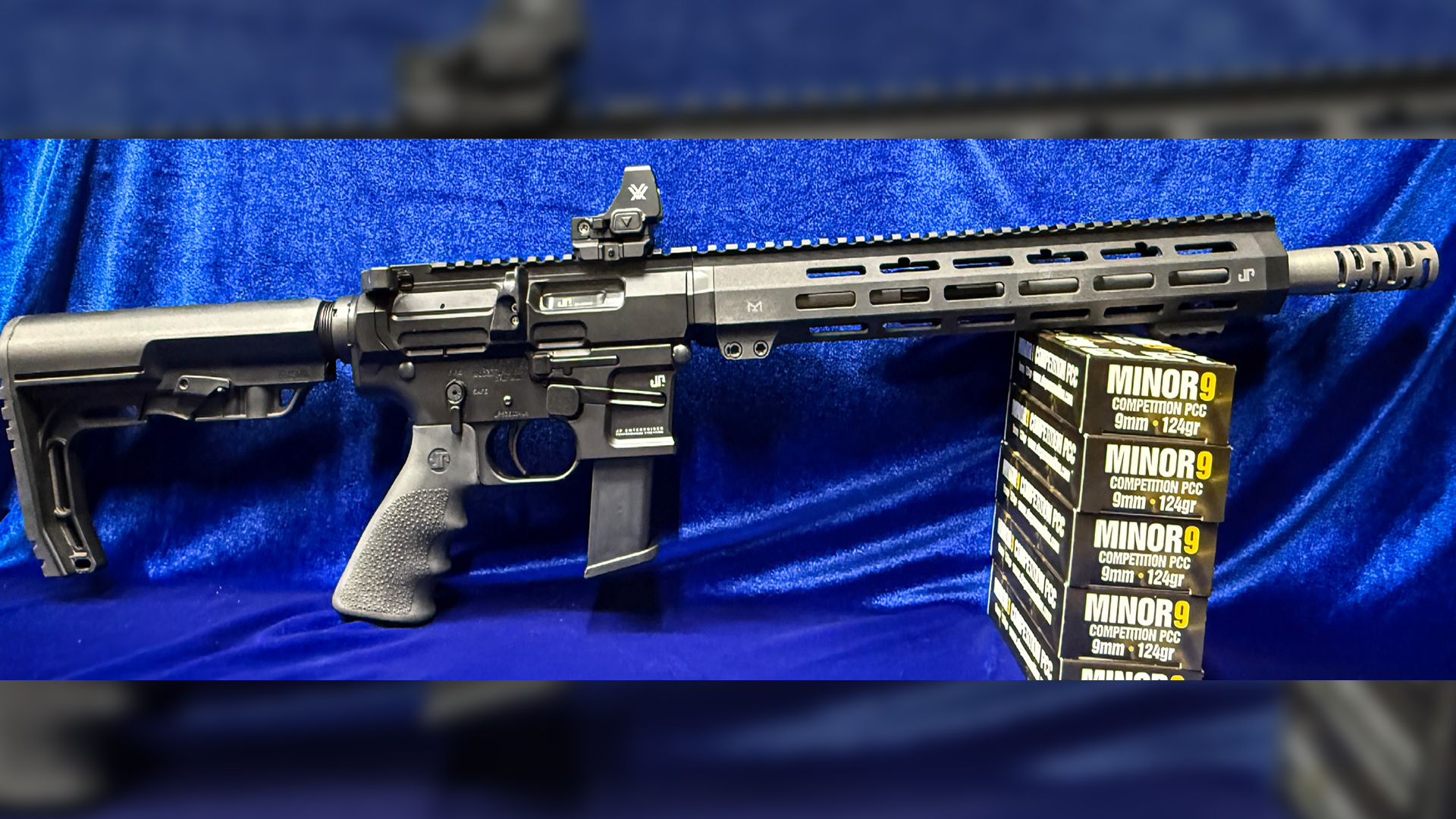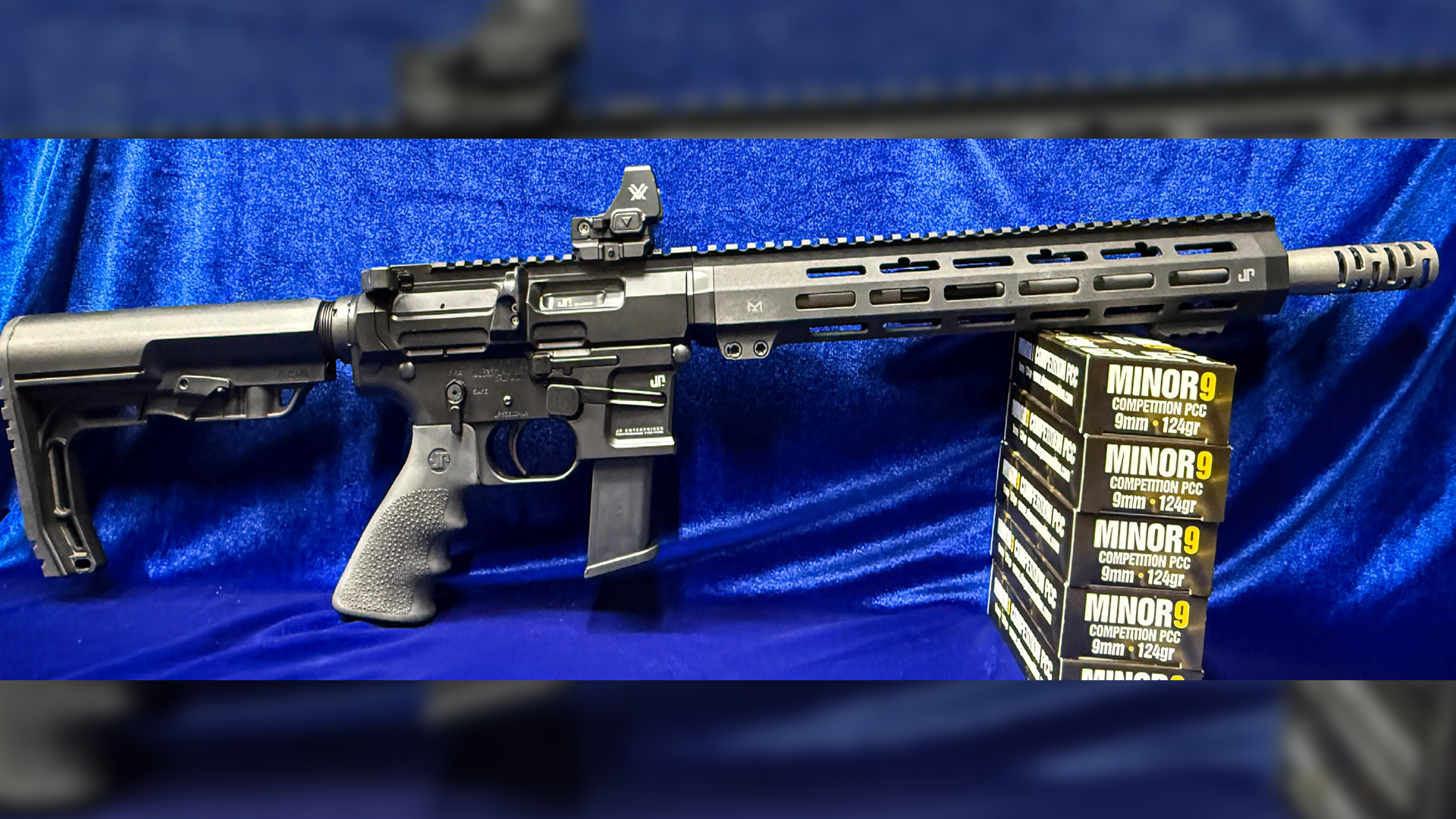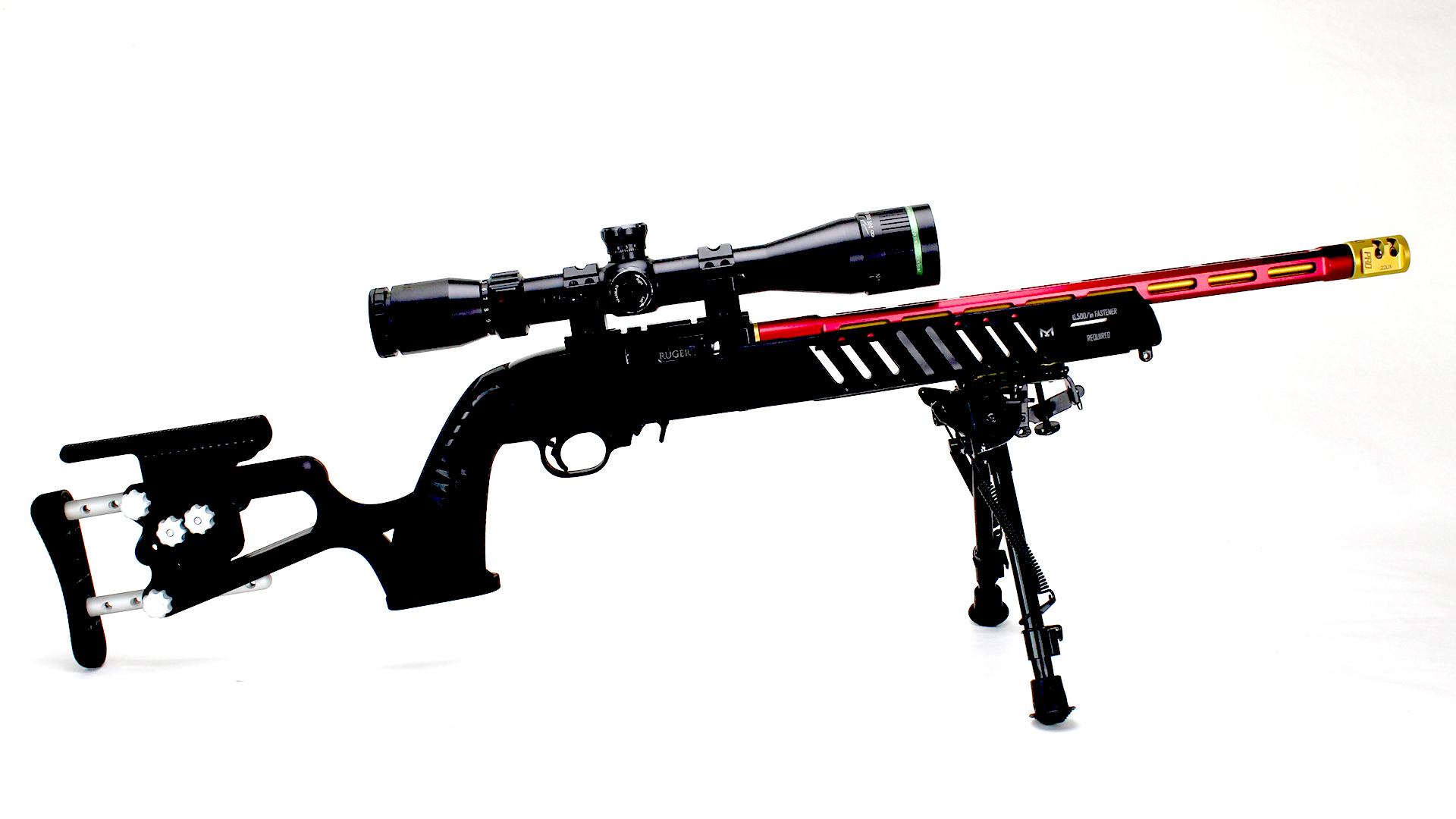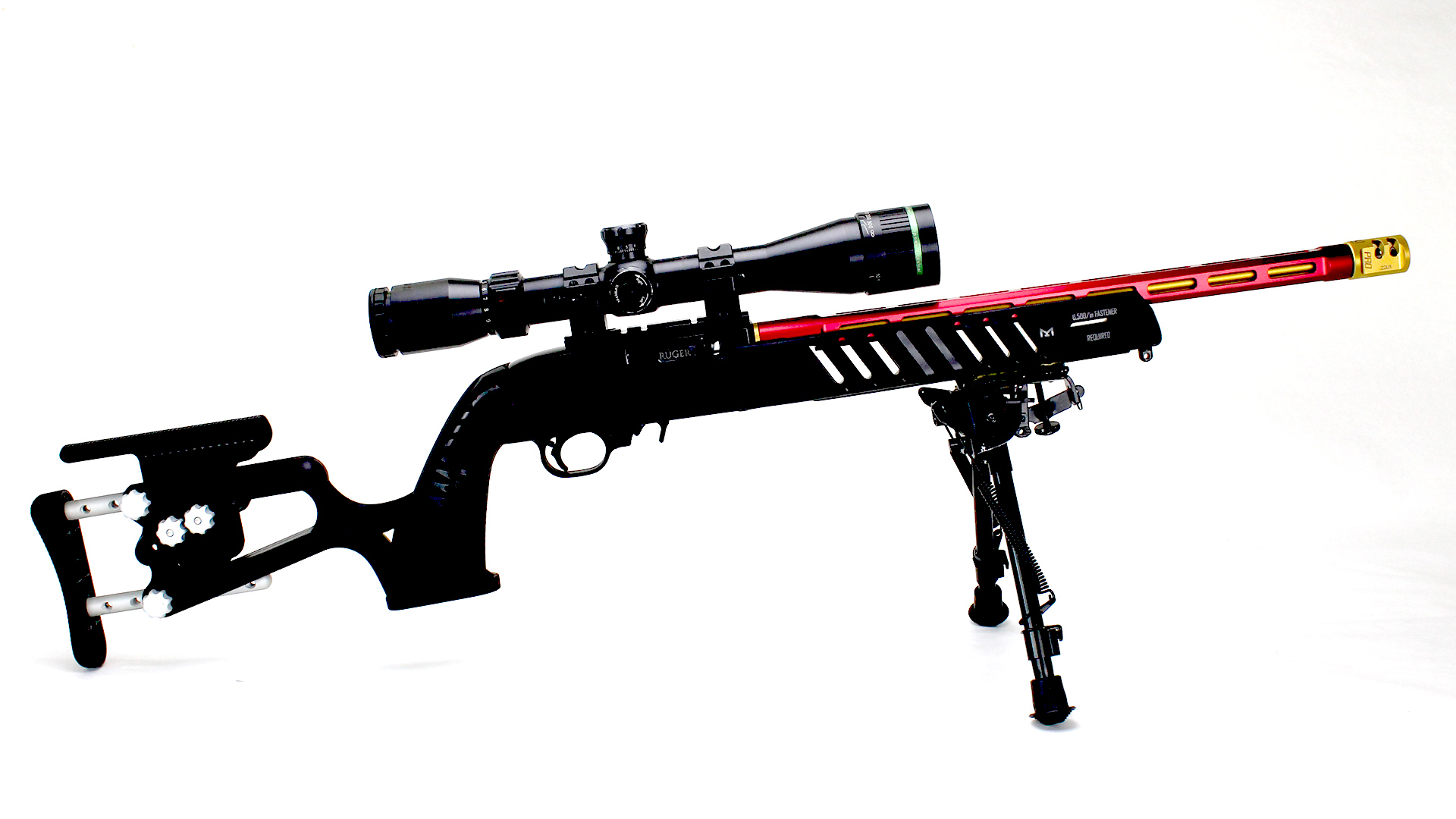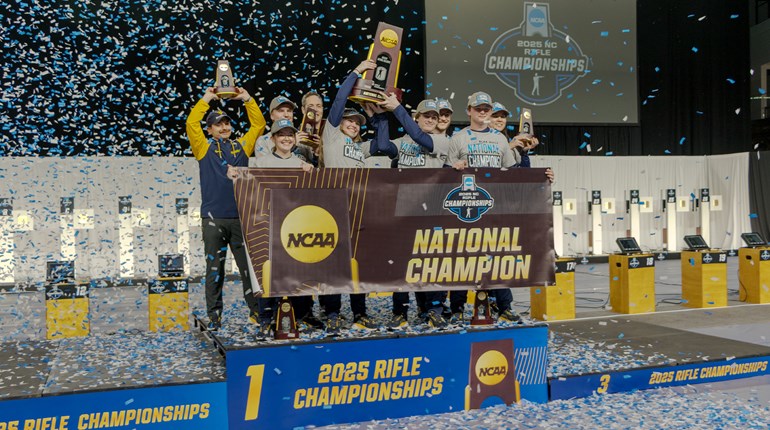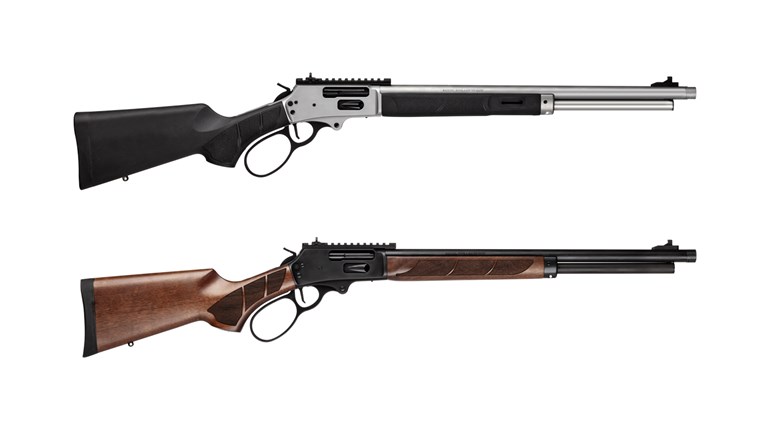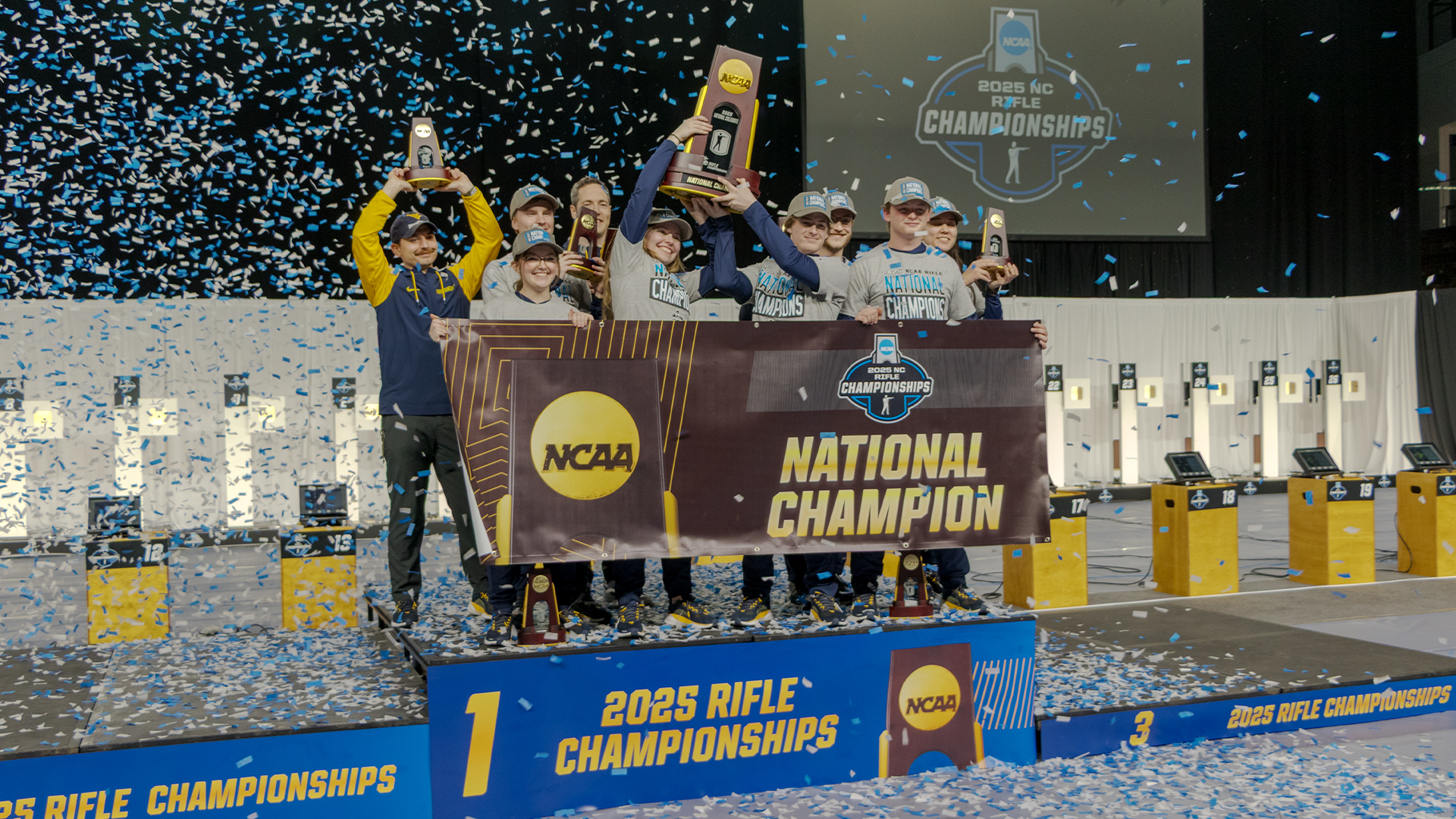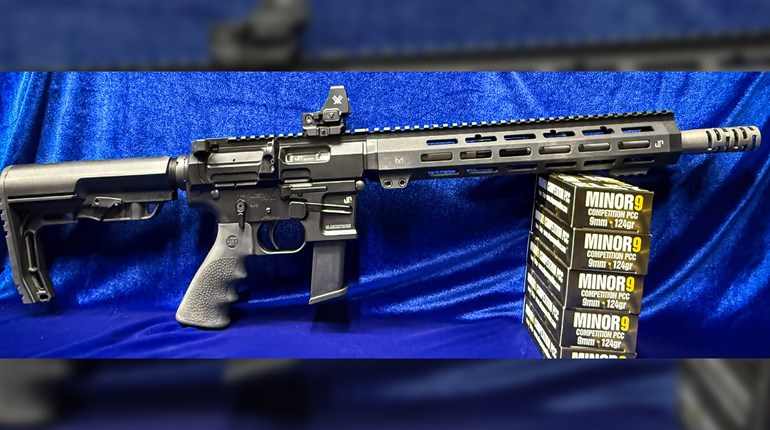
The 1953 National Rifle Association Smallbore Rifle Prone National Championship was historic in many ways. For starters, the year was the 50th anniversary of the National Matches and marked the first gathering of all three core disciplines—smallbore, pistol and high power—on the legendary greensward of Camp Perry since 1940. On the international front, the Pershing Trophy Match, a 10-person shoulder-to-shoulder face-off between the U.S., Great Britain and the Dominion of Canada (in hibernation since 1939) was to be contested.
The diaspora caused by World War II, Korea and post war use of the base was now a relic of the past. The former POW camp saw Commercial Row packed with 27 vendors, as hundreds of competitors swarmed about Donahey Road like newly hatched Lake Erie mayflies. Each NRA standing committee met with constituents, while the NRA Collector’s Committee hosted a magnificent display of over 200 historic firearms to entertain the crowd. Daily booming of artillery pieces being proof fired at the adjacent Erie Ordnance Proving Ground added an exclamation mark to recognize the importance of the gathering.
While there were side events in smallbore, such as the Long-Range Aggregate—three 200-yard matches, the 400 Club Match, and the NRA Life Members’ Match—the heart of the shooting was the Smallbore National Championship, a 480-shot aggregate. It seemed Perry was overjoyed to see the three disciplines back and welcomed the competitors with ideal conditions—gentle winds, temperatures in the 80s, and no rain over six days in late August—setting the stage for a week where records fell in nearly every match.
The Championship opened with Charlie Whipple, of Somerset, PA, blasting out a 400-38X in the 50-yard Metallic Sight Match, the first of the new National Championship records to be established. That afternoon Charlie Rogers, the defending junior champion from Phoenix, AZ, punched out a 400-32X in the 50-meter Metallic Sight Match for the second championship record of the day. The next day, C.L. Wood of Portland, OR, won the 100-yard Metallic Sight Match with a solid 400-32X, just one X shy of the National Championship record set by Kyle Snowhill in 1941. Walt Tomsen of Flushing, NY, the 1948 Olympic English Match silver medalist, closed out the iron sight portion of the championship with his record breaking 400-34X in the Metallic Sight Dewar Match. When the four matches were totaled, Whipple was metallic sight champion and recipient of the Hoppe Trophy with a National Championship record score of 1599-128X.
Whipple’s one-point lead looked mighty slim in light of the fact that the Any Sight Aggregate opened with 243rd place in the 50-yard Any Sight Match taken by a 400x400. Leonard Brewster of Glendale, AZ, won the match with his record setting effort of 400-40-11X. Betty Ingleright, a native of Buchanan, MI, posted yet another championship record score of 400-37X in the 50-meter Any Sight Match. At 100 yards, Charles Eckles of New Hyde Park, NY, put 35 shots into the X-ring, with five escaping into the 10-ring for a record setting 400-35X.
After seven 40-shot matches, four men went to the line knotted up at 2797. Whipple, along with John Crowley of Connecticut and John Moschkau, of Waterloo, IA, and 1948 Olympic gold medalist and NRA Prone Champion Art Cook. They started the Any Sight Dewar knowing that only perfection would bring success. Cook dribbled away two points while the others held tight and came off the line with perfect scores.
The National Championship came down to three identical 3197 scores, separated only by Xs. Each man broke the existing National Championship record. However, Crowley reigned supreme having just established a new any sight championship record of 1600-136X and, along with it, an aggregate record of 3197-255X and the U.S. Cartridge Company and Critchfield Trophies to decorate his mantle.
Crowley had been down two points and nine Xs to Whipple after iron sights but scratched his way back, becoming the first Connecticut shooter to hold the title since Dave Carlson had won it in 1940—coincidentally the last time that all three disciplines were held at Perry. Whipple was second, shooting 253Xs, and Moschkau closed out the top three with 252Xs. The three men, separated by three Xs, recorded the closest finish in match history, with the difference between first and second—an X count percentage of 0.001. Competition rarely gets any better, or closer.
Eleven individual matches, eight fired and three aggregates produced 10 new individual records. Even more amazing is the fact that four were set by riflemen names Charles. To put a cherry on top of this record setting shooting sundae, the U.S. Pershing, Dewar, and Randle Teams all won—establishing new records for their events.
Indeed, 1953 was a historic year in an important decade for smallbore rifle.
See more: How To Master Prone Shooting







